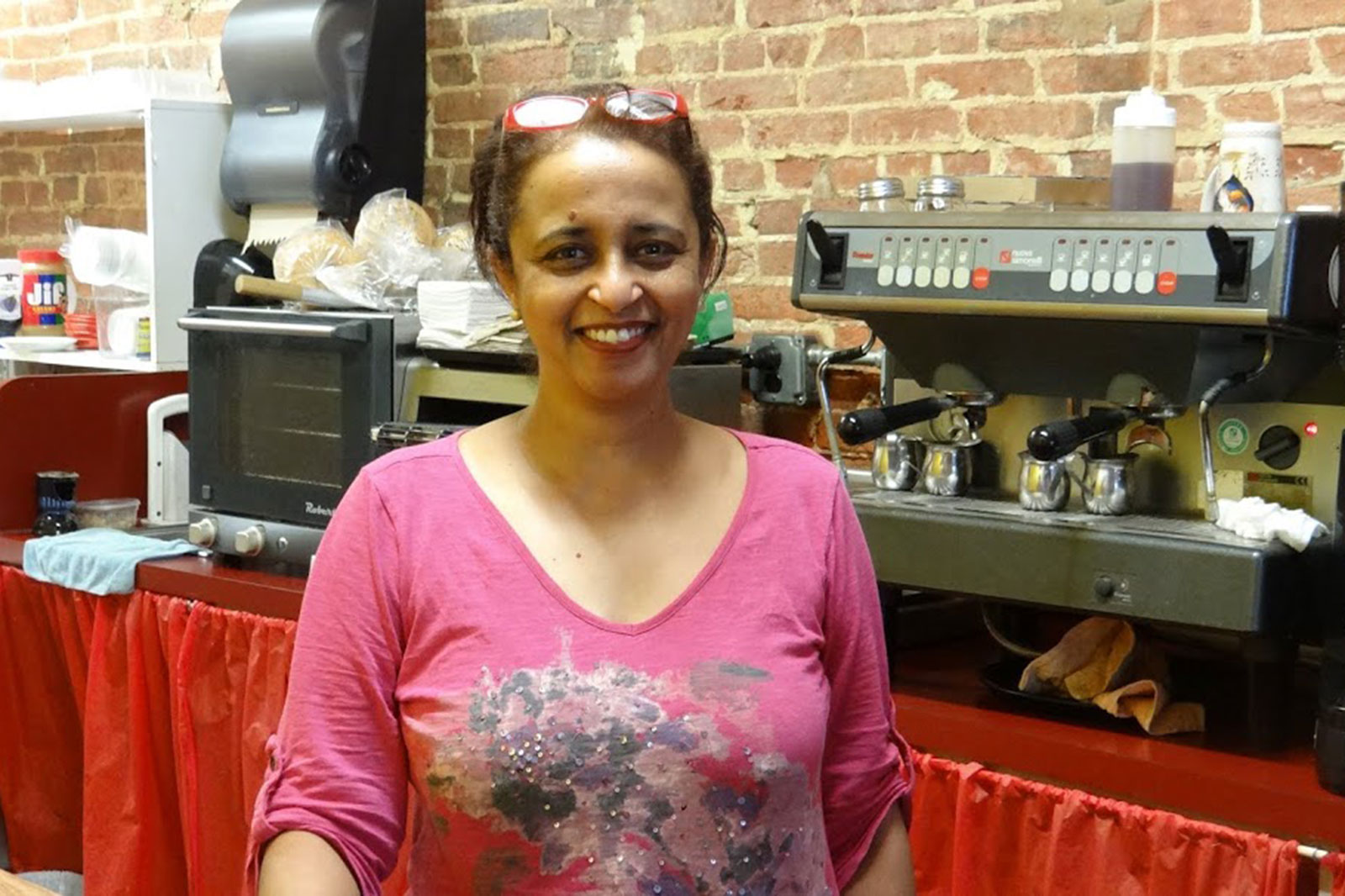BALTIMORE - It’s a rainy Wednesday afternoon, but Café Jovial on Washington Boulevard is bustling with customers picking up lunch and friends chatting over coffee.
Behind the counter is Dede Kassa, the cafe’s waitress/cook/barista -- in fact, its entire staff. She opens her cafe at 6 a.m. most days. She has no commute. Kassa, 47, and her husband live in the apartment upstairs, overlooking the main street of the southwest Baltimore neighborhood of Pigtown.
Her cafe, with its exposed-brick walls, is narrow and cozy. A few tables fill the front of the shop. The works of local artists decorate the walls. Most customers are regulars, and she knows many of their orders by heart.
“It’s the kind of place where people can come together,” said Ben Hyman, executive director of Pigtown Main Street. “Every neighborhood needs a small meeting spot to bring people together. She provides it.”
From the sidewalk outside the cafe’s narrow entryway, Kassa can see the light standards of Oriole Park at Camden Yards. The schools of the University of Maryland, Baltimore lie just a few blocks north. And less than a mile south, building cranes are working on the site of the Horseshoe Casino, set to open in late summer.
Kassa thinks the casino can help speed the revival of Pigtown -- which got its name in the days when pigs were unloaded off rail cars and run through the streets to butcher shops. In recent years, the neighborhood was given the more dignified name of Washington Village, but many -- including the local business association -- prefer to call it Pigtown.
“Everyone is expecting the casino to contribute money to the community,” she said. “A lot of shops have been opening, and we think we’re going to benefit from the casino.”
“Great business potential”
Hyman says 10 new businesses have come to Washington Boulevard commercial strip in the last 18 months.
Sen. Catherine Pugh, a Baltimore Democrat, opened the 2 Chic Boutique at the corner of Washington Boulevard and West Barre Street last winter. “I think the casino will absolutely help,” she said. On game days, “people walk by and stop in,” she said. “We hope the casino will help similarly.”
“There is a lot of great business potential in Pigtown,” Pugh said. “We need to bring in more business that the neighborhood really wants, more restaurants, retail, the high-quality services the neighborhood deserves.”
Hyman thinks the neighborhood will get some notice from casino visitors, perhaps from those “looking for something to do before or after they’re done gambling.”
Kassa certainly hopes the casino will help her cafe.
“Business every day is a struggle,” she said. “We need more traffic, so I’m hoping the neighborhood will change and bring in more customers.”
Some residents are worried that crime will increase with the casino’s opening, “but I don’t see it,” Kassa said. “We don’t get crime from the games, but we also don’t get fans to come visit and spend money.”
A diverse neighborhood
Since Hyman took over Pigtown Main Street in 2012, he said, he worked to bring more police patrols into the neighborhood. It has made business owners more comfortable, he said, and some are staying open later.
The 50-acre neighborhood is one of most diverse in the city. The neighborhood is about 50 percent black, 40 percent white, with Asian, Hispanic and other groups composing the rest, according to 2011 statistics compiled by the Baltimore Neighborhood Indicators Alliance.
The ethnic diversity shows in the neighborhood array of business that feature international food and clothing.
Kassa, who was born in Addis Ababa, Ethiopia, moved to New York when she was 18. That was 1985, in the midst of a famine that the United Nations estimates killed a million people in Ethiopia.
She has also lived in Washington and Texas. She and her husband, Richard, who is also Ethiopian, left Dallas to be closer to family in Northern Virginia and to be in a market where her husband can work at construction jobs.
Kassa wanted to open up a cafe. The couple settled on Pigtown after hearing of a vacancy from Ethiopian friends here.
That was 2 ½ years ago, and Kassa wants to stay forever. “I love the neighborhood so much,” she said. “The people here are great.”


